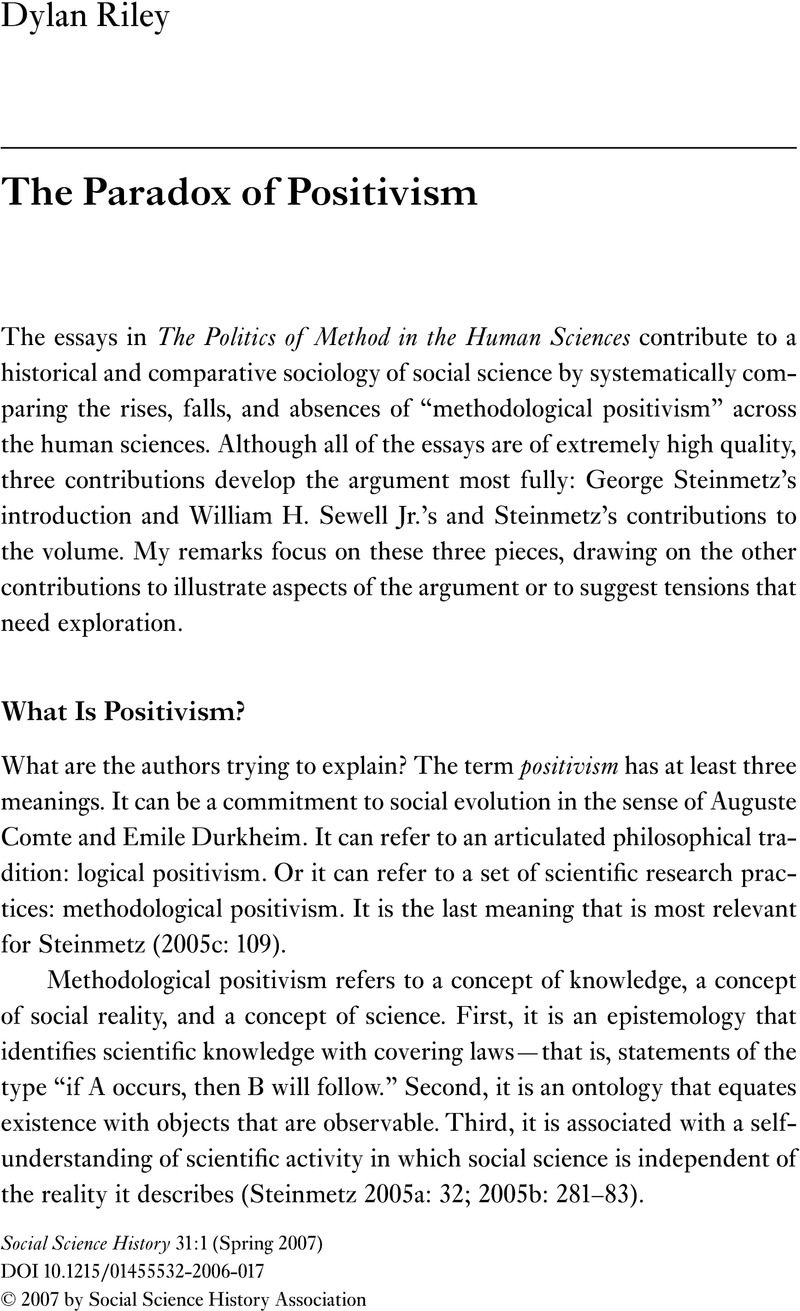Crossref Citations
This article has been cited by the following publications. This list is generated based on data provided by Crossref.
Wyly, Elvin
2009.
Strategic Positivism∗.
The Professional Geographer,
Vol. 61,
Issue. 3,
p.
310.
WYLY, ELVIN
2011.
Positively Radical.
International Journal of Urban and Regional Research,
p.
no.
Gopinath, Deepak
2015.
Shifting of the ontological-epistemological balance in contemporary research agendas: a critique.
Quality & Quantity,
Vol. 49,
Issue. 5,
p.
1873.
Barkov, S. A.
2021.
Sociology as a project of modernity.
Moscow State University Bulletin. Series 18. Sociology and Political Science,
Vol. 27,
Issue. 1,
p.
7.
KALELİOĞLU, Uğur Berk
2021.
Replicability: 21st Century Crisis of the Positivist Social Sciences.
Uluslararası Sosyal Bilgilerde Yeni Yaklaşımlar Dergisi (IJONASS),
Skees, Murray
2022.
A new traditional theory: Fetishizing big data analytics.
Constellations,
Vol. 29,
Issue. 2,
p.
146.



